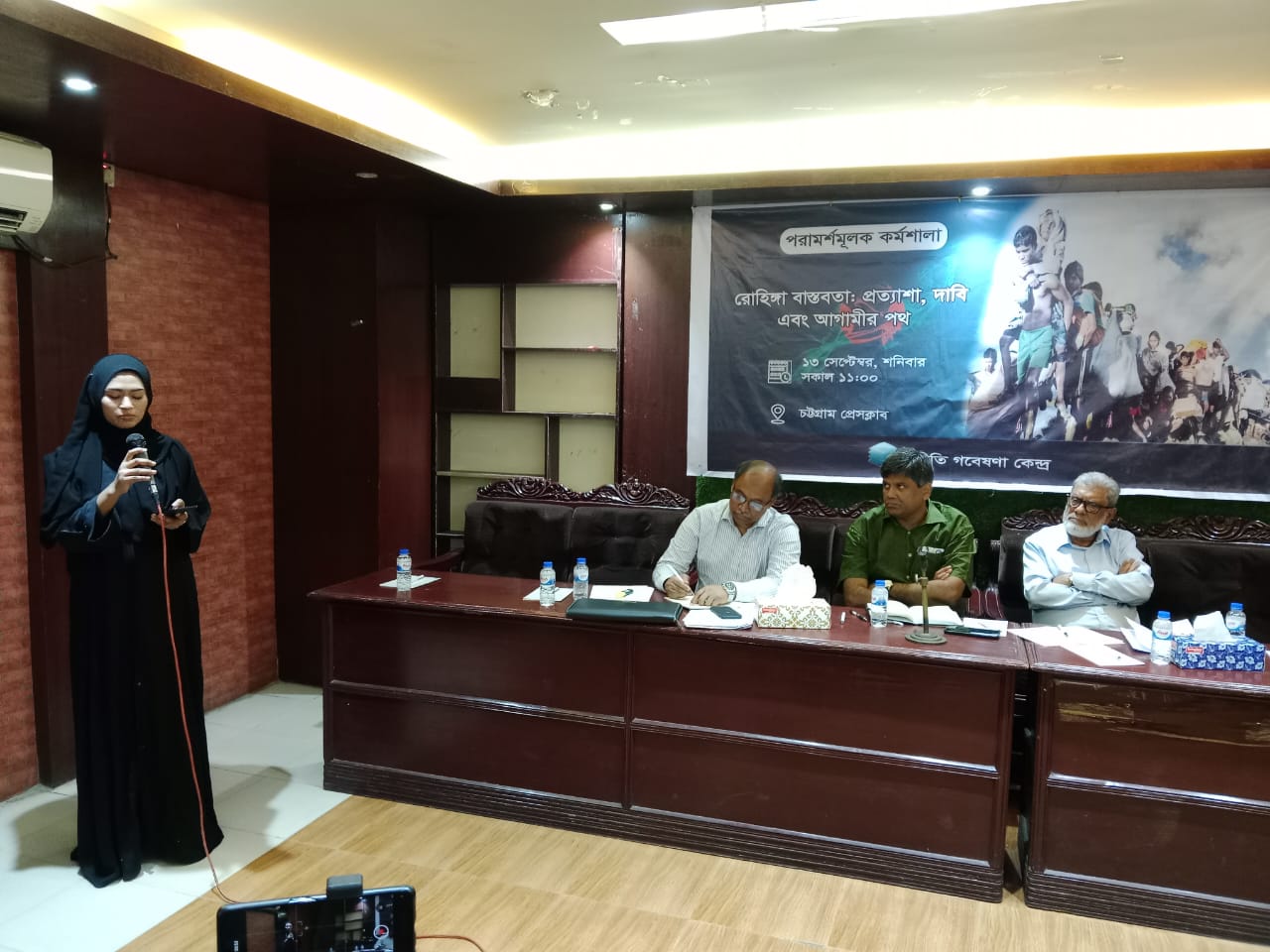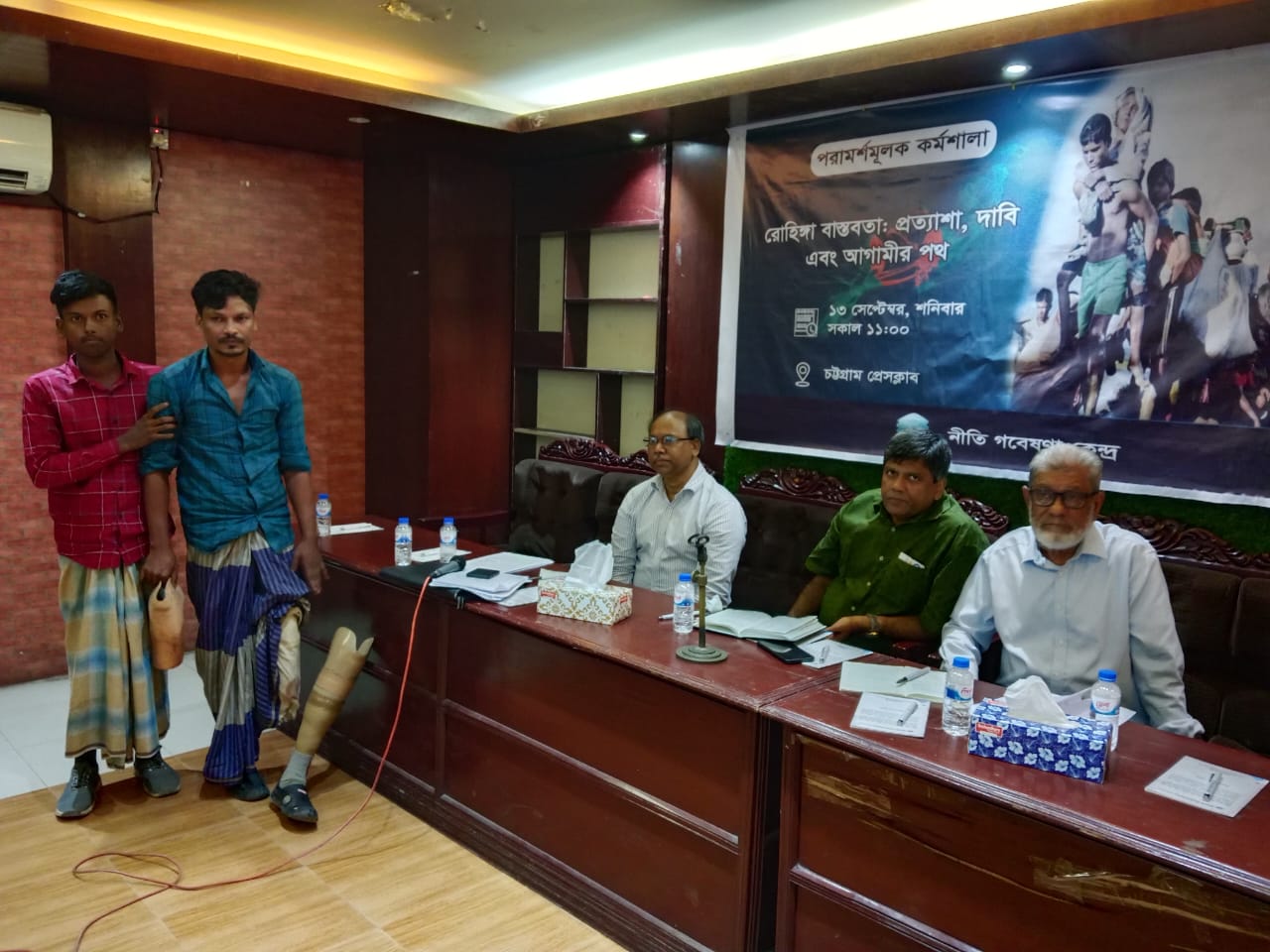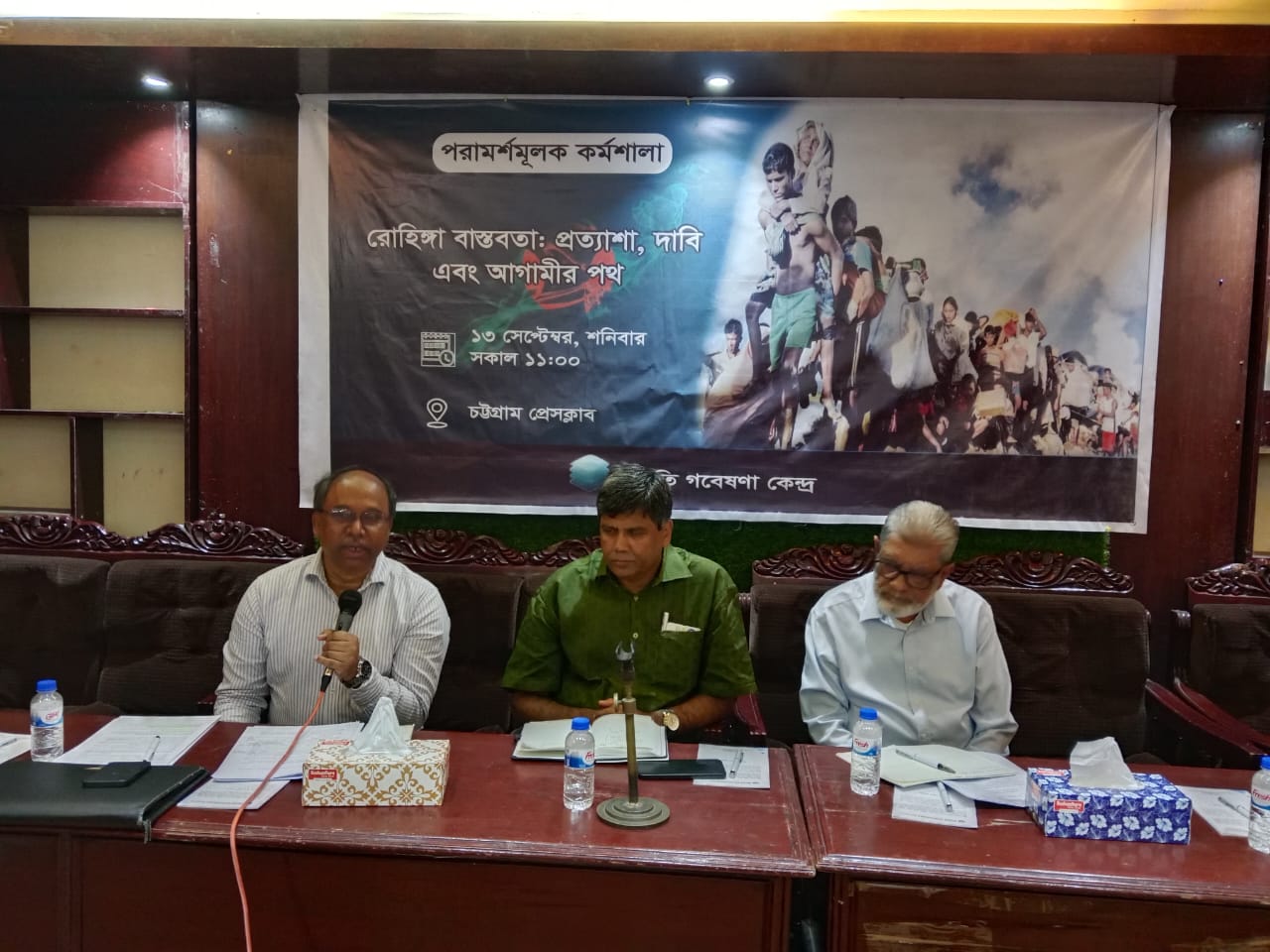Rohingya Reality: Expectations, Demands, and the Way Forward
On Saturday, 13 September, Neeti Gobeshona Kendra organized a workshop at the Chattogram Press Club on the crisis and solutions surrounding the Rohingya issue. The workshop was titled “Rohingya Realities: Hopes, Demands, and the Path Forward.” Mohammad Sufiur Rahman, a former diplomat of the Government of Bangladesh, in his opening remarks, framed the discussion by posing a series of questions. He said that both the Myanmar government and the Arakan Army hold deeply hostile attitudes toward the Rohingya. The greatest challenge to Rohingya repatriation, he noted, will be maintaining unity in their leadership; the longer they delay efforts to return to their homeland, the weaker their right to return will become. “If you lack unity, oppression against you will continue to grow,” he cautioned. A major weakness of the Rohingya community, he observed, is that they have largely accepted these injustices in silence, with little protest or resistance. Nurul Islam, Chairman of the Arakan Rohingya National Alliance (ARNA), said the genocide process did not begin recently; it effectively started under military rule in 1962. Over time this process was cemented in various ways—first by law, which stripped Rohingya of citizenship rights, and then through a series of persecutions that set in motion their expulsion from Myanmar. He said Bangladesh can play the most significant role in facilitating their return. He expressed sincere gratitude to Dr. Yunus and his government for including the Rohingya issue on the United Nations agenda for discussion on 30 September. In essence, he argued, repatriation does not happen without political will or domestic intervention of some kind. Rizia, a social worker in the REWS program and herself a Rohingya woman, lamented that Rohingya continue to be compelled to enter Bangladesh, even if in small numbers every day. In the camps there is little provision for children’s education and a lack of security. Women face numerous crises; they cannot speak freely or voice their problems. Rohingya women are subjected to abuse and neglect even within the camps, and most remain excluded from the right to education. Another NGO worker, Shawkat Ali, said that the budgeted funds should first be used for food, clothing, and shelter, and only then allocated to other projects. Two types of education operate in the camps—madrasah and general education. If key subjects like English, science, and mathematics were incorporated into the madrasahs, there would be no need for two separate management systems, thereby reducing duplication and costs. Selim Hossain, a senior community leader and graduate of Akyab University, said there are two distinct problems: the refugee problem and the Rohingya problem. He alleged that Dr. A. Mank is the chief planner and executor of the Rohingya genocide, and that the Myanmar government has recently absolved him of all cases. In reality, he argued, the genocide that the Myanmar government began is now being continued by the Arakan Army.
September 13, 2024
3:00 PM
Chattogram Press Club
150+
Humanitarian Experts & Community Leaders




